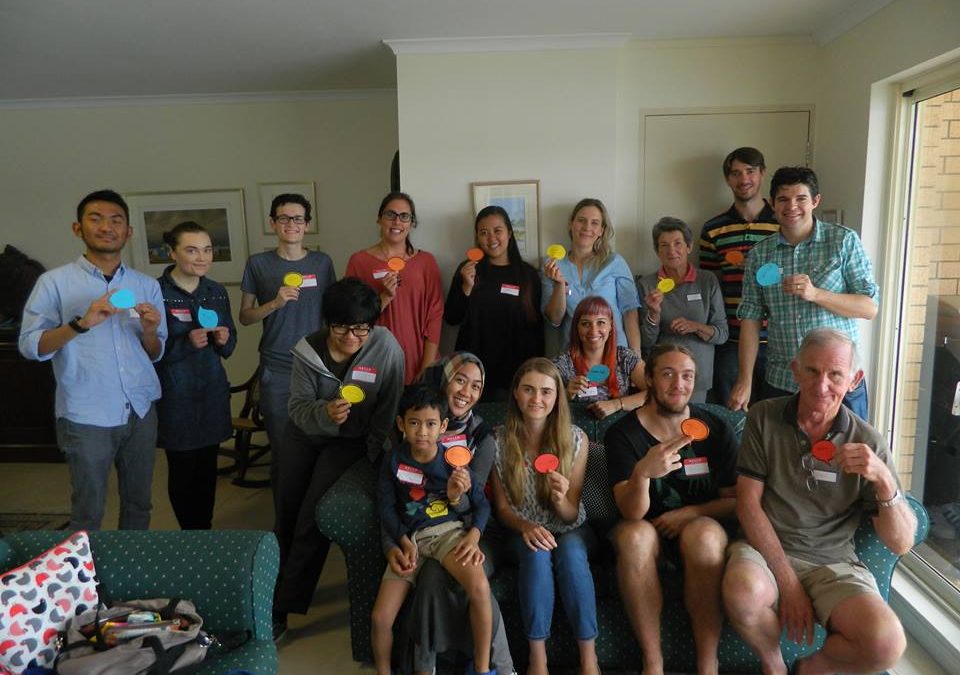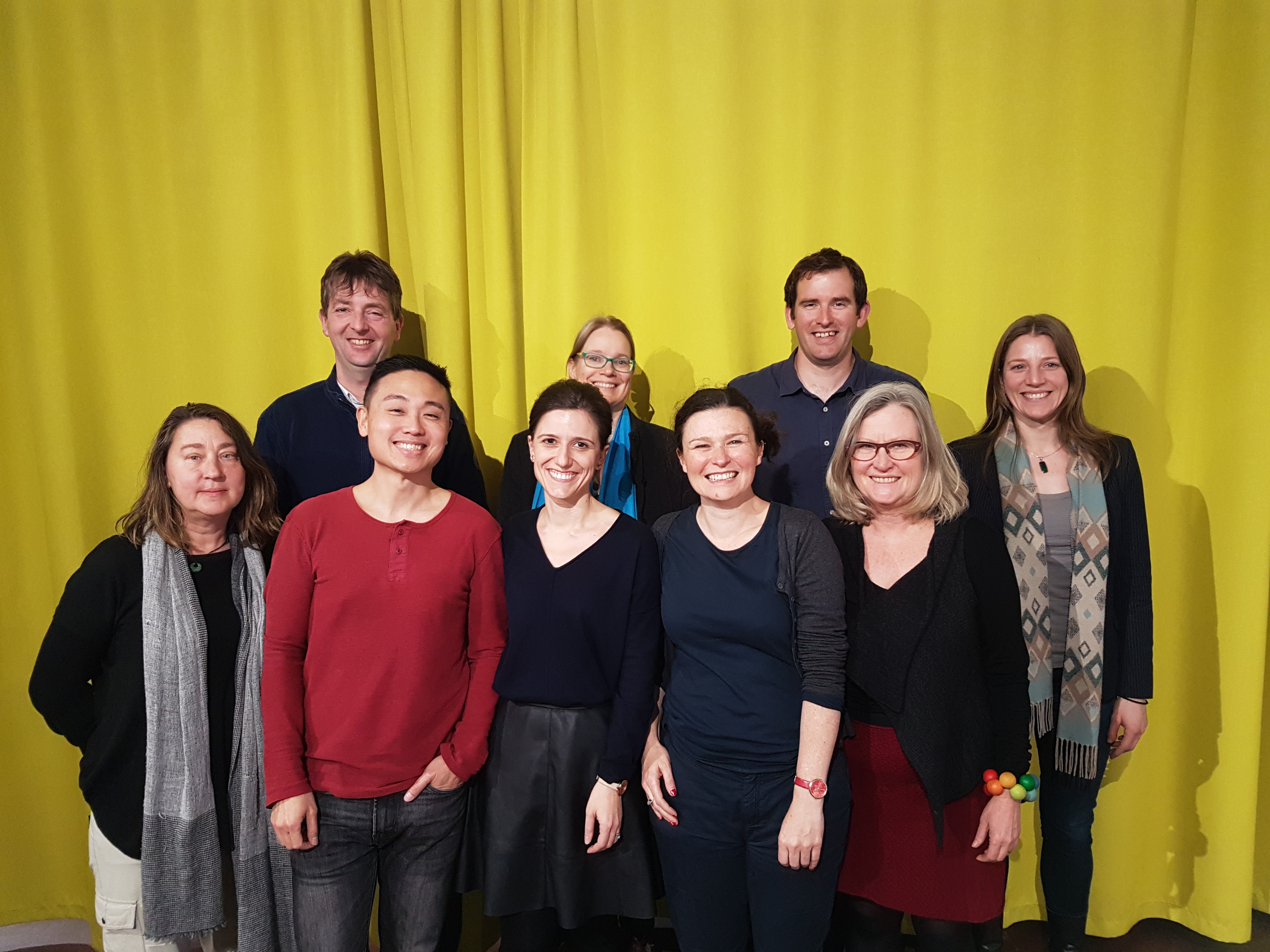How businesses can thrive
Thrivability in Business workshop – Melbourne University’s Thrive Research Hub, August 2017
Written by James Seow
I had the wonderful opportunity to attend the Thrivability in Business workshop organised by Melbourne University’s Thrive Research Hub in August 2017. Using the Eden Project as a case study, the workshop introduced participants to the Thrivability Competency Model, a framework of factors necessary for organisations to thrive. The workshop was led by Belina Raffy, Applied Improvisation and Thrivability thought-leader, and David Harland, Executive Director of the Eden Project and CEO of Eden Project International.
The workshop used Michelle Holliday’s “The DNA of Organisational Thrivability” model as a guide to considering an organisation’s capacity to thrive (https://ageofthrivability.com/). David related his experience at the Eden Project to this model.
Thrivability is defined as “the intention and practice of aligning organisations with how nature and people thrive.” The model invites us to look at an organisation from three perspectives: internal (Passion), external (Purpose) and the interface where the two connect and interact (Practical Play).
One exercise that unleashed my sense of humour and imagination is the “Evil/Good/Amazing” game. We started imagining how an “evil” café might run their business and what it would offer to their customers. Then, we discussed what a “good” café might do instead. The last stage involved us creating the vision for an “amazing” café – the ultimate goal of achieving good business profit, creating outstanding customer value and experience, respecting the environment, using sustainable resources and observing ethical and fair practices. Leaving the “amazing” stage at the end inspires ideas that we might not have thought of yet at the “good” stage.
Listening to fellow participants (I prefer to call them passionate change-makers) share their vision for more sustainable organisations, I gathered the following learning points that question an individual’s concept of organisational excellence.
- Conscious capitalism: Can businesses make money, respect the origins of their resources and do good for the community at the same time?
- Notice more, let go, use everything (by Robert Poynton): Instead of focusing on one target, can we be flexible and open to the opportunities and resources around us at any one time?
- The opposite of play is depression, not work: Make work fun!
- Biomimicry for solutions: Nature often inspires solutions. For example, what can a watering hole that brings animals in a desert together teach us about forming a community of like-minded people?
- Non-linear progress and processes: Think “out of the box” to look for solutions to existing problems. Reframe current issues and look at them from different angles. I recommend Edward De Bono’s book, Lateral Thinking, for this.
- Vision and “future truths” to build support and momentum: Sometimes, to convince prospective partners to collaborate with us, we have to behave as if we are already there. A “can-do” attitude and a strong conviction in one’s beliefs and goals help plans to materialise.
- No “but”; try “yes” and “and”: Instead of ignoring or negating what other people want and say, acknowledge their goals and build on that. Try saying, “YES, I see what you mean by this AND we can also….” Address your needs as well as the other person’s.
8. Who is in your team matters: I think this is the most important. Make sure you have the right people with the right attitude, potential and talent in your team. To paraphrase what David Harland, Executive Director of the Eden Project, said about his staff, if you were to cut in half all the people there, you would see “Eden” written inside every one of them. Get people who share the same values and goals with you on board.
Welcome to My Blog
Here is a basic blog layout with a right sidebar
Volunteer profile: Meet Gillian from Melbourne’s inner west
There would be no Welcome Dinner Project if it wasn't for hundreds of amazing volunteers all around the country who give boundless passion, dedication and love to make people feel welcome in our communities. Every fortnight, the Welcome Dinner Project - Victoria will...

Christine’s Story: “It was actually the very first time I felt welcomed in Australia.”
Merry Christmas! It has been an absolute pleasure sharing these Christmas stories with you and we're delighted to end on this one from Christine* who, for the first time, felt welcomed to Australia as a participant at a Welcome Dinner. More Than Just a Dinner I was...

Andrew’s Story: “For us the WDP is a practical, proactive and positive way of responding to current Australian challenges. “
From Food to Friendship and Family Me and my family are part of the neighbourhood at the local church, where we focus on sharing meals, exploring the world together and making our neighbourhood a little bit better. So when we heard about the Welcome Dinner Project, we...

Sahil’s Story: “I was really interested not only in the food, but more in the people, what they are doing with their lives, how they are living and what they are thinking.”
As an international student, discovering the Australian culture and people was an enriching experience for Sahil, made possible through the WDP. Breaking the Barriers with Food I came to Australia in 2013 and I was 18 years old. I had the worst experience that an...

Rachel’s Story: “When we reach out to people, when we smile, connect, acknowledge the differences and similarities,we are making a huge difference.”
Changing the World One Dinner at a Time I’ve been coordinating The Welcome Dinner Project in Melbourne since 2016. Coming from a politically active family and having worked in the settlement sector, with service providers and young people, WDP was something that was...

Ali, Haneen & Hasan: “All the adventures that I am experiencing these days is because of my new good friends from WDP.”
Arriving to Australia as a family from Iraq, Ali, Haneen and Hasan were able to form a large circle of friends through the WDP: Good Friends are Priceless Initially we were involved with the Welcome Dinner Project as guests. After this first Dinner, our circle of...


